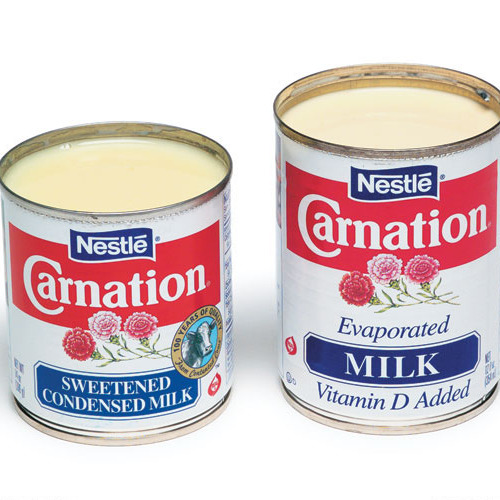How To Import Concentrated Milk Into Nigeria
How To Import Concentrated Milk Into Nigeria
As the world’s population is expanding, there is an increasing demand for milk. Milk contains calcium, vitamins A and D, protein, and other nutrients. It also provides a source of energy and can be enjoyed as a refreshing drink or used in cooking to make desserts like yogurt. Milk is one of the most important ingredients in Nigeria’s cuisine.
The global milk industry has grown rapidly over the last few decades; it ranks among the top two staple food industries along with grain. The Nigerian government allows imports of some dairy products such as cheese and powdered milk from countries that have been approved by the World Trade Organization (WTO). There are various ways to import concentrated milk into Nigeria, but some might not be legal or practical. Here are a few ways on how you can import concentrated milk into Nigeria legally and easily
Why Nigeria Needs Milk
With the population of Nigeria reaching 186 million, there are many people who are living in poverty. These Nigerians have limited access to food and milk products. This is why milk is important to the Nigerian diet.
With milk being an important part of the Nigerian cuisine, it is necessary for foreigners looking to do business in Nigeria to also be aware of how Nigerians consume their milk.
Nigerian law allows the importation of certain dairy products including cheese and powdered milk from approved WTO members.
Here are a few ways on how you can import concentrated milk into Nigeria legally and easily:
– You can find someone that has approval to import milk into Nigeria or work with them through an agent;
– You can import your own shipment of concentrated milk by following proper customs procedures;
– You can contact companies like Nestlé or Dairylea which distribute their products in Nigeria;
– Lastly, you may send your shipment of concentrated milk in two separate containers in order to bypass customs inspection in countries like Benin, Cameroon, Chad, Congo DR, Ghana, Ivory Coast Cote D’Ivoire (Ivory Coast), Liberia, Mauritania, Niger Republic (Niger Republic), Senegal and Sierra Leone.
Approved Countries by the WTO
The Nigerian government only allows the importation of some dairy products from countries that have been approved by the World Trade Organization (WTO). These are mostly European countries, including Finland, Denmark, Netherlands, Ireland, Switzerland, Belgium, Italy and France. As for other countries in Africa such as Kenya and Ghana, it is possible to import their dairy products into Nigeria without much risk.
When importing concentrated milk into Nigeria from these approved countries there are a few things to take note of. For example, if you are importing cheese or powdered milk you will need to get an import licence from the National Agency for Food and Drug Administration and Control (NAFDAC). NAFDAC can be contacted via phone or email for more information on obtaining an import licence.
How to Import Concentrate Milk into Nigeria
There are various ways to import concentrated milk into Nigeria, but some might not be legal or proper. Here are a few ways on how you can import concentrated milk into Nigeria legally and easily.
Importing cheese or powdered milk is a popular way of importing dairy products to Nigeria. Countries that have been approved by the WTO export their cheese and powdered milk products to Nigeria duty free.
Another way of importing concentrated milk is through duty-free shops at the airport. But a lot of people don’t know that this might not be very practical because duty-free shops sell mainly luxury items.
You can also import concentrate milk indirectly by importing other dairy products such as butter, custard powder, evaporated milk, custard powder, condensed milk and yogurt powder. By doing this you get the opportunity to save money by avoiding customs duty fees.
The Import Permit Process
To import concentrated milk into Nigeria, you need an import permit issued by the Nigerian government. The import permit is necessary for all products imported into Nigeria and is required before the shipment of any goods arrives in Nigeria. You can apply for one at the Department of National Planning (DNP) where they will verify your company’s details and sign the document; this will be valid for six months.
The DNP department will also assess if there are any products missing from the list of products approved by the WTO to be imported legally into Nigeria. If not, you can apply for a Certificate of Origin to prove that your product originated in a country approved by the WTO. The certificate is needed if your product does not have a label with its country of origin marked on it.
Using a Shipping Container
Shipping containers are used to import all sorts of products, including food. They can be filled with any kind of product and sealed off before arriving in the destination country. This is one of the easiest ways to import concentrated milk into Nigeria because all you need to do is place your order with a shipping company. The container will carry your product from where it is produced all the way to Nigeria.
A disadvantage of this method is that there is a high cost involved in importing the containers and they take up a lot of space in storage areas.
The RCP Process
The first way is to use the Regional Dairy Expansion Programme (RCP) process. Under this, a Nigerian company that produces milk can export the product to another country for processing and then return to Nigeria as an import.
Conclusion
The Nigerian economy heavily relies on agriculture, which is why many people are in the farming industry. Dairy products are important to Nigerians because milk provides calcium, protein, and other nutrients. There are various ways to import concentrated milk into Nigeria legally and easily.








LEAVE A COMMENT
You must be logged in to post a comment.